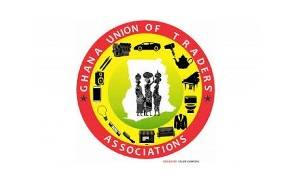The Ghana Union of Traders’ Associations (GUTA) has expressed strong disagreement with the Public Utilities Regulatory Commission (PURC) over its recent decision to increase utility tariffs, which will come into effect on May 1, 2025. GUTA, a key representative body for traders in the country, has criticised the hike, suggesting that it fails to address the deep-rooted inefficiencies and mismanagement within the electricity and water sectors.
According to GUTA, the decision to raise tariffs overlooks the underlying issues, such as wastage, corruption, and poor governance that plague institutions like the Electricity Company of Ghana (ECG) and Ghana Water Limited (GWL). GUTA's Secretary-General, Alpha A. Shaban, made these points clear in a statement, emphasising that the focus should be on improving the management of these utilities, rather than placing the burden of inefficiencies on consumers.
The PURC’s announced adjustments include a 14.75 percent increase in electricity tariffs and a 4.02 percent hike in water tariffs for all consumers. The commission has justified these hikes by pointing to various economic and operational factors, including the exchange rate between the cedi and the dollar, inflation, fuel costs, and the current mix of hydro and thermal power generation.
However, GUTA strongly disputes the rationale provided by the PURC, stating that the real problems facing the sector are not related to external factors like fuel prices or inflation. Instead, GUTA argues that corruption, mismanagement, and waste within the utility companies are the core issues that need to be addressed. Shaban further suggested that if the government were to tackle these inefficiencies, it could reduce the cost of production, support local industries, and even mitigate challenges like currency depreciation and food inflation.
One of the more serious accusations raised by GUTA concerns the misuse of public resources. According to Shaban, certain elements within the public sector have exploited the system for personal gain, turning the public sector into a "gold mine" for a select few. He called for immediate reforms to eliminate such practices, emphasizing that these inefficiencies hinder the country's economic development.
GUTA also urged the government to take more decisive action in combating corruption and recovering stolen public funds. Instead of increasing tariffs, GUTA believes that the government should focus on addressing the issues of waste and mismanagement within the sector. The traders’ association argued that such steps would ultimately lead to more sustainable solutions and reduce the financial burden on consumers.
The ongoing debate between GUTA and the PURC highlights the broader concerns many Ghanaians have about the management of public utilities and their rising costs. While the PURC maintains that the tariff increases are necessary to cover operational costs, GUTA insists that without addressing the systemic inefficiencies, these increases will only continue to put pressure on consumers, particularly those in the private sector.
As Ghana continues to navigate the challenges of economic growth, energy management, and infrastructure development, the discourse surrounding utility tariffs will likely remain a point of contention. GUTA’s stance has added to the growing calls for greater accountability and transparency in how public services are managed in the country.


